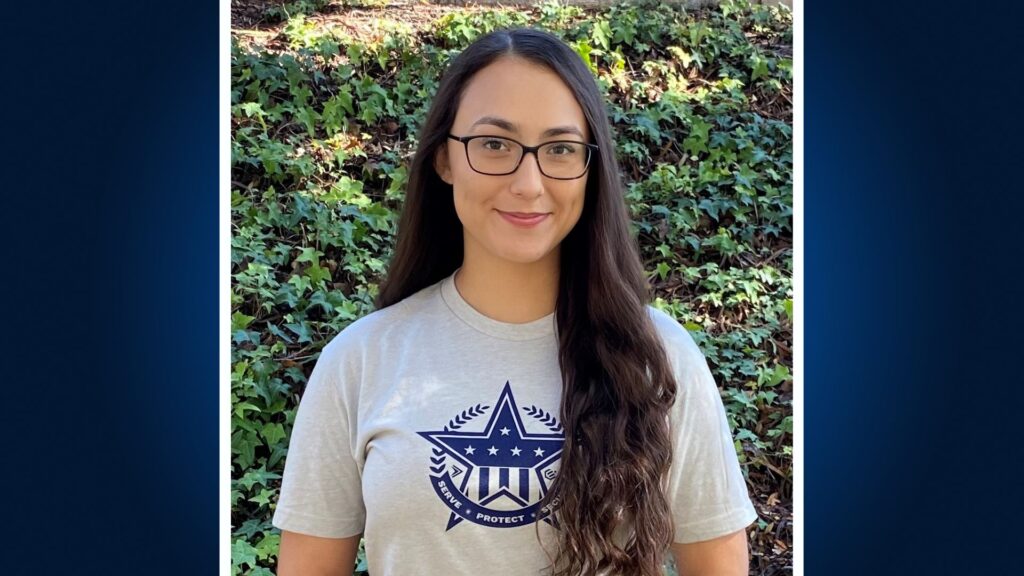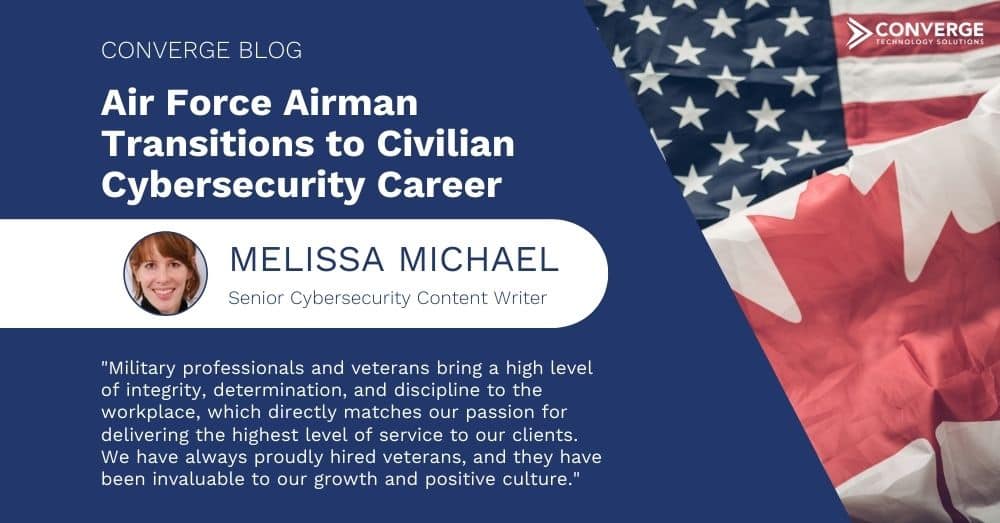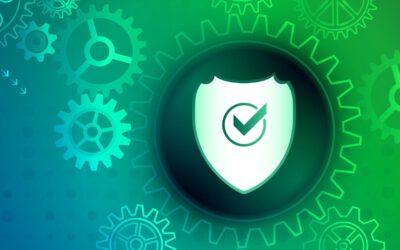This Veteran’s Day (US) and Remembrance Day (Canada), in honor of those who have served, we’re spotlighting a service member, Rachel Price, who joined Converge Cybersecurity via the Department of Defense’s SkillBridge program.
While the regimented nature of the armed services may not appeal to everyone, it was that very structure that attracted Rachel Price to the US military.
As a high school graduate who excelled at the top of her class, Price was uncertain about her career path. Wanting to be part of something greater than herself, she joined the US Air Force, knowing its structure would equip her with the discipline to excel professionally and personally. It was a decision that set her on a course to a career field where her drive to learn is sorely needed: cybersecurity.

Now, nearly four years later, Price is nearing the end of her enlistment period with three years of experience as a cyber threat analyst under her belt. She plans to continue to focus on cybersecurity in her post-military career.
Price recently joined Converge Cybersecurity as a trainee via the Department of Defense’s SkillBridge program. The program gives service members who are nearing the end of their enlistment period the opportunity to work for a private or public sector organization, facilitating their transition back to the civilian workforce.
“The skills and characteristics service members gain in the military environment make them an asset to any organization,” said Marcus Stefanide, Director of Talent Acquisition for Converge Cybersecurity.
“Military professionals and veterans bring a high level of integrity, determination, and discipline to the workplace, which directly matches our passion for delivering the highest level of service to our clients,” Stefanide says. “We have always proudly hired veterans, and they have been invaluable to our growth and positive culture. As a SkillBridge Authorized Employer, we are excited to offer this opportunity to military professionals, providing them with civilian enterprise experience as they close out their service with the military.”
Asked about her military career and her role at Converge, Rachel shared what she’s learned through SkillBridge so far.
Can you tell us about your military role?
Until recently joining Converge via SkillBridge, I worked as a cyber threat analyst in the Air Force. Part of my role was in threat intelligence, where I researched threat actors and malware sets. I then pushed that information to be utilized by cyber warfare operators, who conduct cyberspace hunt operations while also securing and defending various types of networks. The other part of my role was working as a network analyst—going through data, understanding it, and detecting anomalies.
Overall, my efforts supported defensive cyberspace operations that ensured national interests were protected and defended from attack and that cyberspace capabilities could be used to achieve national objectives.
Do you have veterans in your family who inspired you to join?
My grandfather served in the Air Force for 28 years, and my brother was in the Marine Corps for four. They are both such strong individuals and role models in my life. It was my grandfather and brother’s selfless service in the military that inspired me to also join the military and serve.
How did you get interested in cybersecurity?
Before joining the military, I didn’t know much about computers. I knew how to turn one on, of course, but little about what goes on inside them. When I joined the Air Force, I knew that I wanted to do something technical, where I would gain marketable skills.
I had identified the intelligence field as one of my interest areas, so based on that and on my ASVAB scores, I was offered a cyber threat analyst role. I was unsure at first, but my brother encouraged me to pursue it, as it would challenge me and provide me with valuable skills. As I got into the training, I found it very interesting.
Cybersecurity, or the lack thereof, affects so many aspects of our lives. If data is leaked and information is stolen, the negative consequences can be dire, like in healthcare and finances. So, in cybersecurity, if we do a good job protecting data, our work has an impact. That is something I was really drawn to.
How is the SkillBridge program helping you with the next phase of your life?
Transition can be scary in any situation, whether you’re graduating from high school, college, leaving a job you’ve been at for a long time, or exiting the military like me. So having a program that helps me not only expand and develop my technical skills, but also helps with soft skills, and lets me experience what it’s like to work in a civilian environment, is really helpful.
It’s a very self-motivated program. You have to go out and get the interviews yourself, talk to different companies and apply. But anyone can do it as long as you meet a few requirements.
What do you do at Converge Cybersecurity?
It’s a very unique opportunity. There’s a training plan set for me that flows through different subfields of defensive cyber operations like threat intelligence, incident response, threat hunting, and system forensics.
In the few weeks I’ve been here, I’ve been working on the threat intelligence portion. I’ve been shadowing people a lot and seeing how they do their analyses. I’ve been helping with providing resources to the analysts to help them validate different indicators of compromise. I also had the opportunity to research and write up a report about a vulnerability in OpenSSL to provide actionable information to our clients and to the wider community.
How is working in a private company different than your job in the military?
There are differences, for sure. We use different tools here than I have worked with before. And as far as how you interact with people, it’s not as structured as in the military, where you have to say “yes, sir” and “yes ma’am.”
There are a lot of similarities as well. There are days we have set aside for training, which is the same in the military, because you can only do your best analysis and work when you’re up to date with your training and your readiness.
How is cybersecurity different than what you imagined before you got into the field?
When I found out this job was in cybersecurity, I was a little intimidated at first because cybersecurity seemed mysterious and beyond me. But now that I’ve had the chance to learn and work in it, I see that anyone can do it, as long as you have the mindset of a constant learner and can think critically. You just need to take time to learn it and work on the foundations and build up from there.
What are some of those foundations you think people should master?
You need to understand different operating systems, like Linux versus Windows systems. You need to know networking as well, understand how the different hardware like computers, switches, and routers all work together. You need to know the basics of cybersecurity hygiene like strong passwords, MFA, all those kinds of things.
You also need some basic programming—for a lot of cybersecurity roles, you don’t need to be an expert programmer, which, I think, is a misconception. When you see a malware set executing for example, you don’t necessarily need to recreate it on your own, but you need to understand what it’s doing and how it’s executing. So, you need to be able to understand some programming, and maybe be able to use some scripts and tools.
How do you feel your military experience has prepared you for the rest of your career?
Joining the military was one of the best decisions I have made. Not only do I have the opportunity to serve my country, but it has given me the structure I was looking for. It has given me discipline and focus that has helped me with job training and at work, and in pursuits outside of work as well, like with fitness. That structure and discipline for various aspects of life is something I think will help me throughout the rest of my professional and personal endeavors.
The foundations and guiding principles of the military are also helpful for a career. Each branch has its own guiding principles, and one of the Air Force’s core values is “excellence in all we do.” Having the mindset of pushing yourself to be the best in whatever you do is good preparation.
I’ve also been afforded a lot of opportunities that I wouldn’t have had if I hadn’t joined, with education and training. I’m currently pursuing a bachelor’s degree in computer science, and I have three GIAC certifications. I’m very grateful that joining the Air Force set me on course for a career in a field that’s important and highly in demand in the digital world we live in.





